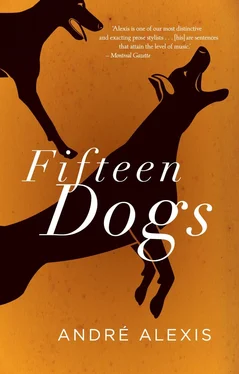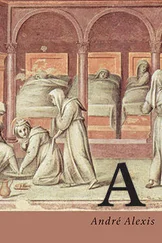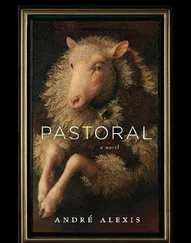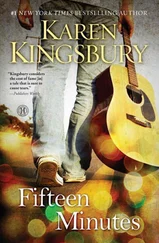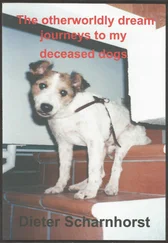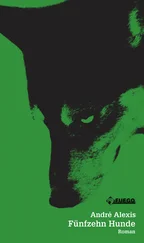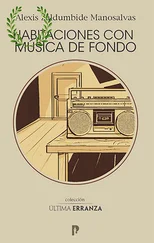— The feeling you had for your mother, she said, that’s one of the meanings of love .
But if Majnoun had ever known his mother, it had been too brief an acquaintance to stimulate any specific emotion. Nor were there likelier candidates for Majnoun’s love. His master? His master had been a master, and one was loyal to masters out of habit, fear, or necessity. Certainly, Majnoun had enjoyed his time as a pup. He was grateful for his master. At the thought of him, Majnoun recalled moments of sheer pleasure chasing a ball thrown in a patchy field, inexpressible joy. But where his master was concerned, Majnoun’s emotions were more complex and much darker than ‘love,’ encompassing as they did feelings of resentment and dislike. No, if he had to choose a human word, Majnoun would have chosen loyalty to express what he felt for his master. (For this reason, despite feeling nameless, he’d have preferred Nira call him Majnoun, the name his master had given him.)
For other dogs he’d felt no emotion as complex as loyalty, let alone the emotion Nira was trying to describe. As far as Majnoun was concerned, his relationship to other dogs had been, for the most part, un complicated. There were dogs one could dominate and dogs one could not. As other dogs could bite you or mount you when you didn’t want it, it was best to keep one’s feelings clear and easily communicable.
After a while, Majnoun became convinced that when Nira spoke about ‘love,’ she was talking about something that was and would always be beyond him. When, one day, she said
— Miguel is my mate. I love him
Majnoun was too bored by the question to be interested. To get Nira to stop asking about ‘love,’ he nodded his head ‘yes’ when next she asked if he understood. Both of them knew, however, that he was lying. (As it happened, Majnoun was a poor liar, accompanying as he did his lies with unusual enthusiasm.) And it was a sore point between them.
By the time Nira and Majnoun came to this contretemps about ‘love,’ eight months had passed and already a thousand intimacies tied them together. She knew what he liked to eat. He knew not to disturb her when she was doing her work. He helped her clean the house as best he could, learning where things went and putting them in their place when he could. She made certain the chew toys he liked best were in good nick, buying new ones whenever the old were too mangled to be enjoyed. In other words, by their eighth month together, Nira and Majnoun were friends.
Also, after eight months, Majnoun could walk without too much pain and even, if he had to, run for short bursts. His worst leg’s tendons had healed sufficiently, though he avoided putting all his weight on them. His bandages had long gone and aside from his right ear — the top of which had been chewed clean off by Max — he looked more or less like a normal poodle.
Miguel suggested that Majnoun and Nira should take longer walks together, now that Majnoun was better. He suggested they walk in High Park, but this suggestion was, of course, awkward. Although Nira did not hide Majnoun’s sensitivity from her husband, and although he often witnessed the two of them in their version of causerie , Miguel did not believe Majnoun could communicate with Nira or she with him, not in any profound way. He assumed, rather, that Majnoun understood a handful of words, but that, beyond these words, the dog simply nodded or shook his head more or less at random. When Nira had first informed him — terrified — that the dog had spoken to her, he had laughed. He couldn’t help himself. This dog-and-human communication business was, to his mind, an aspect of Nira’s ‘granola and Wiccan’ tendencies, the same tendencies that had led her to read Mary Daly, to experiment with lesbianism and to speak of the sacredness of her poum-poum. Certainly the dog was bright, but not bright in the human sense, not possessed of great memory or the capacity for speech. So, Miguel did not for an instant consider the emotional complications of High Park.
Some of High Park’s complications were trivial; some had psychological weight. On the trivial end: Nira did not know what to do about leashes. There were whole areas of the park where dogs were not allowed to walk about unleashed. She thought it degrading to parade Majnoun about as if he were, well, a dog. Majnoun himself had no opinion on the matter. It did not humiliate him to wear a collar, but he clearly saw the disadvantage of being restrained when aggressive dogs came at him. So they agreed he would have a leash attached to a green leather collar by thin threads. At his slightest jump, the threads would break and Majnoun could stand his ground to defend himself.
(Inherent in the question of leashes was, of course, the question of power. Nira was uncomfortable with power or even with the appearance of it. One day, she asked Majnoun if he would put her on a leash, their positions being reversed. He had answered ‘no,’ and this had made Nira feel even more uncomfortable. But Majnoun had, in fact, misunderstood her question. If she had said
— Masters have agreed that their submissives must be bound to them with leashes and collars. If you were a master, would you keep me on a leash?
Majnoun would, without hesitation, have answered ‘yes.’ If she had been his submissive, he would naturally have treated her according to the custom. Order in a pack is maintained through convention, and it made no sense, as far as Majnoun was concerned, to overturn conventions that worked. But he had understood her question on a more practical level. He had thought of how awkward it would be for him to hold a leash in his mouth while Nira walked about on her hands and knees. Understanding the question as he had, the only possible answer had been the ‘no’ he’d given.)
Another trivial complication had to do with humans. The humans who came to the park were a varied lot: all stations, races and genders. Inevitably, as Majnoun was striking in his bearing, someone asked Nira if they could touch him or give him treats — the desiccated biscuits, most of which Majnoun found bland and sweet. Nira assumed that Majnoun would not mind the displays of affection. So, she was surprised to discover that, au contraire , Majnoun was highly selective in whom he allowed to touch him. Nira would say
— No, he doesn’t bite
or
— Sure. I don’t think he minds being petted.
And the first few times, he stood still for it. Then, as if for no reason, he decided he’d had enough. An older woman approached and asked if she could pet him and he shook his head ‘no.’ He moved away at her approach and would not let himself be touched.
— I’m sorry, said Nira.
When the woman had gone on her way, she said to Majnoun
— I didn’t know you objected. Don’t you like to be touched?
Majnoun shook his head, and that, you’d have thought, was that. Except that it wasn’t. From then on, Majnoun decided for himself whom he would allow to touch him, nodding when he was prepared to be touched, shaking his head when he was not.
When Nira was asked
— May I pet your dog?
she answered
— You’ll have to ask him yourself.
Questioned, Majnoun would either nod ‘yes,’ to the delight of the stranger who would then ask
— How did you teach him to do that?
or Majnoun would shake his head ‘no,’ which was also delightful to strangers and provoked the same question:
— How did you teach him to do that?
Either way, Nira’s answer to the question was a shrug of the shoulders.
It being impossible for her to detect any pattern to Majnoun’s yeses or nos, she assumed his choices were random. They were not, though his criteria were just beyond Nira’s ken. First, Majnoun did not like to be touched by humans who smelled unpleasantly. It was, in human terms, like being asked to shake the hand of someone with shit on his fingers. Second, and more subtly, was the question of station. Versed as he was in the finer aspects of dominance, he recognized at once when someone — for instance, the older woman whose touch was the first he refused — behaved as if they dominated Nira. It was in the old woman’s tone, energy and disposition. As Majnoun found it inadmissible that any creature outside his pack (his pack being himself, Miguel and Nira) was of higher status than Nira, he refused to be touched by those who, however inadvertently or unconsciously, belittled her.
Читать дальше
